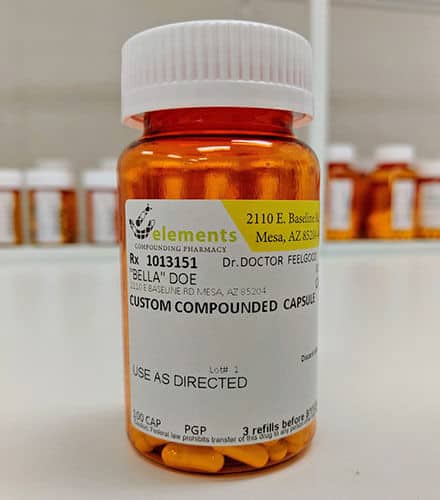Comprehending the Conveniences and Uses of Fenbendazole in Vet Medication
Fenbendazole has actually established itself as a vital anthelmintic in veterinary medicine. Its capability to target numerous parasitic infections makes it a valuable device for veterinarians. The drug's device interrupts crucial mobile processes in bloodsuckers, resulting in efficient therapy end results. Nevertheless, its safety account ranges varieties, requiring mindful consideration in its usage. Recognizing these dynamics can clarify fenbendazole's more comprehensive effects in vet treatment and ongoing study right into its potential beyond conventional applications
Mechanism of Action of Fenbendazole

Typical Parasitic Infections Dealt With With Fenbendazole
A variety of parasitic infections are successfully treated with fenbendazole, making it a flexible option in vet medicine. This anthelmintic representative is specifically efficient against nematodes, including roundworms and hookworms, which frequently influence pet dogs and pet cats. It is likewise used for the therapy of cestodes, such as tapeworms, giving a broad range of action against both sorts of intestinal parasites. In addition, fenbendazole is useful in managing infections triggered by protozoa, especially Giardia, which can cause intestinal distress in animals. Its efficiency includes treating specific lungworms in dogs and felines, attending to respiratory system health concerns linked to these parasites. On the whole, fenbendazole's ability to target several parasitical types makes it a beneficial device in veterinary technique, guaranteeing the wellness and well-being of animals affected by these typical infections.
Security and Efficacy in Various Animal Variety
The safety and effectiveness of fenbendazole vary among different pet varieties, underscoring the value of species-specific considerations in vet medication. In dogs, fenbendazole is usually well-tolerated and efficient versus a variety of intestinal parasites, consisting of roundworms and hookworms. For felines, nevertheless, its use is much less common and may call for careful application due to possible adverse reactions.
In livestock, such as cattle and sheep, fenbendazole demonstrates efficiency against various endoparasites, adding to enhanced health and productivity. The pharmacokinetics and possible side results can vary markedly between varieties, necessitating mindful assessment by veterinarians.
Equines additionally respond positively to fenbendazole, specifically for treating strongyles and ascarids, though dosage and management courses should be tailored to their one-of-a-kind physiology. Recognizing these differences is vital for optimizing treatment outcomes and making certain animal welfare throughout varied types.
Administration and Dosage Standards
Proper administration and dose standards are crucial for making best use of the healing effects of fenbendazole while decreasing possible side results. The dosage usually differs depending upon the species being dealt with, the specific condition, and the solution of fenbendazole utilized. fenbendazole. For pet dogs and pet cats, a typical dosage is 50 mg/kg body weight, administered once daily for 3 consecutive days, however vets might adjust this based upon specific wellness assessments
It is very important to administer fenbendazole with food to improve absorption and minimize stomach trouble. The drug is available in numerous types, including granules and paste, enabling flexible management choices. Monitoring the pet's reaction during and after treatment is suggested to validate effectiveness and safety. Additionally, vet advice is important to identify the ideal duration of treatment based on the sort of parasitic infection being resolved, ensuring ideal outcomes for the pet's wellness.
Future Point Of Views and Research on Fenbendazole
Study on fenbendazole remains to progress, concentrating on its potential applications past conventional antiparasitic usages. Current studies have discovered its efficiency in treating numerous kinds of cancer cells, especially in vet oncology. Preliminary data recommend that fenbendazole might inhibit the growth of growth cells and enhance the effects of various other chemotherapeutic agents.
Scientists find here are examining its function in handling gastrointestinal problems in pets, highlighting its anti-inflammatory homes. The flexibility of fenbendazole for different species raises inquiries regarding its safety profiles and optimal application programs in diverse populaces.
As rate of interest expands, there is a need for comprehensive scientific trials to develop evidence-based guidelines for these novel applications. Future research study may also examine the mechanisms behind fenbendazole's effects, potentially paving the means for cutting-edge healing methods in vet medicine. The recurring exploration of fenbendazole could significantly boost treatment options for different veterinary conditions.

Frequently Asked Concerns
Is Fenbendazole Safe for Pregnant Animals?
The safety and security of fenbendazole for expecting animals remains unsure. While some research studies suggest marginal threat, vets typically suggest care and often suggest against its usage throughout pregnancy unless the advantages plainly outweigh prospective dangers.
Can Fenbendazole Be Used in Livestock?
Fenbendazole is generally utilized in animals to deal with numerous parasitic infections. 222 mg. Its efficiency against stomach worms click here now makes it an important anthelmintic, adding to boosted wellness and performance in animals increased for food and fiber
What Are the Adverse Effects of Fenbendazole?

The negative effects of fenbendazole may consist of gastrointestinal disruptions, sleepiness, and allergic responses. In rare situations, more severe responses can occur, requiring mindful monitoring and consultation with a veterinarian during treatment.
Exactly How Does Fenbendazole Compare to Various Other Dewormers?
Fenbendazole uses broad-spectrum efficiency against different parasites, frequently comparing positively to other this article dewormers. Its distinct mechanism targets various life stages, making it effective, while usually presenting a beneficial safety and security account contrasted to alternatives available on the market.
Can Fenbendazole Be Utilized for Dealing With Cancer Cells in Animals?
The potential of fenbendazole in treating cancer in animals has amassed passion. Initial research studies suggest it may prevent cancer cells cell growth, yet additionally study is essential to confirm its effectiveness and safety and security in vet oncology.